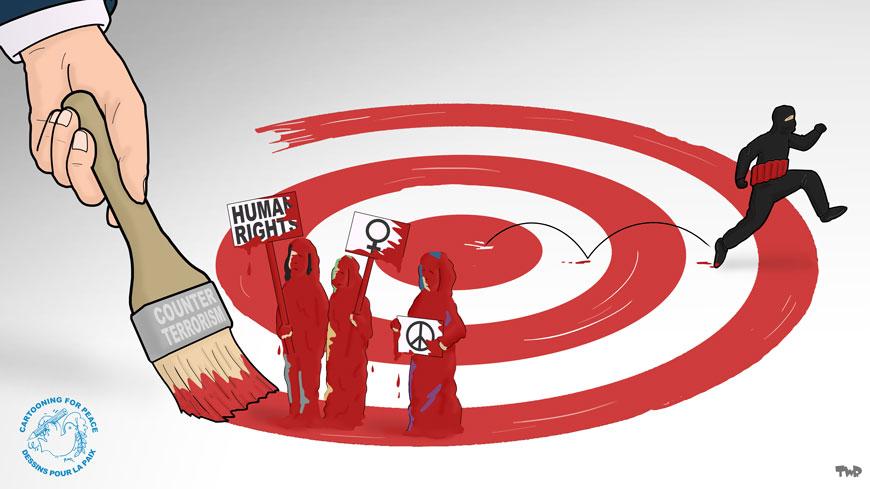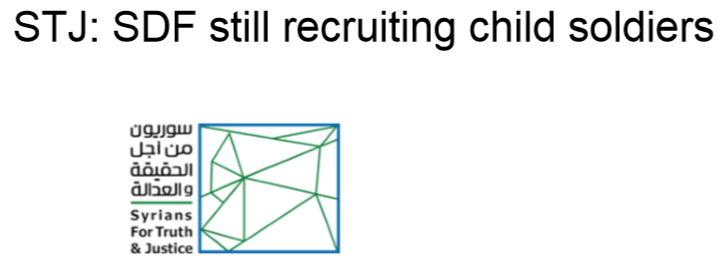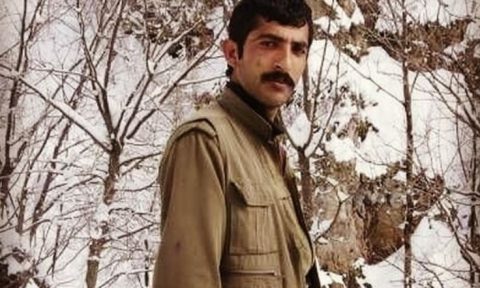In today’s modern warfare, geopolitics and society, Human Rights has become one of the most abused words in the dictionary. Politicians, movements and governments use the phrase ‘Human Rights’ to discredit their opponents, as an argument to attack, to kill and invade, and as a tool to justify their own actions and policies.
The horrors of fascism and the atrocities committed in the first and second world wars created an evolving consensus around human rights as an international norm that led to the ‘Universal Declaration of Human Rights’ – which celebrated its 72th anniversary last summer – that enshrines these values. This declaration became the foundation of a multitude of global and regional measures that established a body of human rights law.
Yet, even at the time of this declaration, Human Rights became a way for several ‘Western’ countries to justify its policies towards its opponents, and even sovereign leaders and countries as a whole. As the adoption of the 1948 Declaration coincided with the beginning of the Cold War, it instantly became the Western world’s favorite propaganda tool. Communist states, though the majority of them supportive of the Declaration, were displayed as grossly violating many of its norms, with the morally enlightened ‘West’ portraying themselves as ‘the defenders of the oppressed’.
The West treated the Cold War as a conflict in which it defended ‘the values of democracy and human rights’ and shamed Communist countries by publicly exposing and blowing up violations where possible, and by giving support to human rights groups and dissidents. In the case of Latin America, Western policy often even drew that line in favor of dictatorships in the name of their shared goal of ‘anti-communism’, ignoring the lack of democracy and real human rights violations as suited their own political agenda.
The Evolution of policy-making based on the protection of universal Human Rights
Though, in the 20th century, politicalization of Human Rights was mostly done through the use of propaganda, with the adoption of several laws and doctrines over the last 15 years, Human Rights now has become a way to invade, sanction or punish other countries.
With the adoption of the Responsibility to Protect (R2P) Doctrine in 2005 to protect citizens against abuse by their government, military intervention is allowed. Human rights policy has also increasingly focused on holding those individual officials including heads of government, who are responsible for gross violations accountable. The International Criminal Court was established for this very purpose, warning dictators that their misdeeds would be punished.
President Trump has openly attacked the Court and threatened its judges while all other Western countries continue to firmly support it, he withdrew the US’ signature under the founding decree and set up the ‘Global Magnitsky Act’. This act directly targets individuals responsible for human rights violations with sanctions, which contrarily to UN acts, only the US has to sign.
Human Rights has thus become a slogan that is heavily politicalized to put more power in the hands of the morally enlightened ‘Western’ countries – whose own violations of Human Rights and internal issues concerning injustice and inequality – are so often ignored.
A legion of ‘human rights’ organizations and policy-forming ‘think tanks’ is established, supported and funded by these Western countries. Funny is that the great majority of the narratives of these organizations suits the political agenda of its funders. Often we see that biased research is performed and reports of human rights violations are based on ‘anonymous sources’ or ‘credible sources’ instead of hard proof, and form the image we observe daily in the mainstream media. Decisions concerning military interference, support for oppositions and sanctions are often based on these reports.
Many complaints from humanitarian workers in countries that are targeted by ‘Western’ governments and concern the West’s allies is that their own reports of human rights violations on the ground are often ignored or morphed to fit the narrative.
One-sided ‘Human Rights’ reports have formed the way we perceive other countries
In fact, biased reports on Human Rights violations in addition to political propaganda have went so far to form the pre-internet generation’s opinion of certain countries, such as Iran, Russia and China, that the majority of people in ‘Western’ countries automatically perceive these countries as dangerous and a possible threat to their own nation, even when faced with proof of the contrary.
Although the US itself has approximately 6000 nuclear heads and have previously used a nuclear bomb in Japan, the American people are firmly indoctrinated that if Iran possesses nuclear heads, it will cause mass destruction. And although the US itself currently has 61 offenders on federal death row, charged with aggrevated murder, espionage, treason and other ‘crimes against the state’, it heavily speaks out against the Iranian capital punishment, which is issued in cases of murder, rape and terrorism, usually referring to the offenders as ‘activists’ and leaving out the crime committed in reports.
When it comes to China, the most popular narrative when it comes to Human Rights currently is the persecution of Uyghur muslims in Xinjiang, that are taken to “re-education camps”. One must know that Xinjiang has known a large problem of islamic radicalization, and has known dozens of massive terrorist attacks, that included bombings in buses, marketplaces and parades. In these large-scaled attacks, dozens to hundreds of civilians have died. Also, thousands of Uyghur muslims were recruited by radical organizations such as Al-Qaeda and ISIS. Instead of bombing the extremist groups in their hide-outs – an option most ‘Western’ countries seem rather keen on – China has reserved to surveilling, and re-educating where necessary, its muslim population.
Another example of propaganda with a Human Rights narrative, is condemning the way China carries out surveillance against its citizens. We must not forget that we – in Western countries – are surveilled as well. As everything we do on the internet, and all of our private information, is sold to third parties – including the government – by social media platforms such as Facebook.
The biggest scandal when it comes to biased reports on Human Rights violations of the decade, is perhaps the Douma chemical attack, that occurred in April, 2018. The attack was attributed to the Syrian Army by rebel forces in Douma, and by the United States, British, and French governments, that heavily bombed the Syrian government in its aftermath. By now, it is proven that the whole attack was staged by the rebels, helped by their affiliated fraudulous ‘humanitarian organisation’ the white helmets, and the OCPW investigation turned out to be an easily manipulated, convenient cover-up. After all, Bashar al-Assad is the enemy, right?
The Kurdish Issue and Human Rights
The seperatist organisations among the Kurdish minorities of Turkey, Iraq, Iran and Syria often use a ‘Human Rights’ narrative to justify their cause. Many of these groups’ existence is based and masked by the so-called oppression of the Kurdish people. Many crimes against the Kurdish people have been committed in the past, though these crimes ask for political and judicial solutions, not an armed insurgency.
So we know now that many of thr Kurdish seperatist groups justify their armed insurgency by promoting Human Rights. Yet, investigation has shown that no local organisation that is actively reporting Human Rights violations is actually independant. All organisations are linked to the same seperatist parties that oppose the local government, and are thus subjectively reporting on the situation. Fact-checking reports often provides a different perspective
Reports on Human Rights violations against Kurds are often biased and exaggerated, but as they fit the narrative, copied by the mainstream media. Reports on extorsion, assassinations, vandalism and the recruitment of minors by these groups are often neglected and will not be found in the mainstream media.
Whistle-blowers; a danger to the ‘good guy’ narrative
We’re in a chilly time for whistle-blowers as well. While the digital age is endlessly permissive in propagating false narratives and racism, Western authorities are uncompromisingly harsh when the information is accurate, important and ofcourse , inconvenient. As ‘freedom of speech’ is one of the favorite narratives when it comes to being ‘the good one’ and condemning the enemy, whistle-blowers that bring out our own dirt often face prosecution.
One of the greatest examples of this is Julian Assange, Wikileaks-founder and world’s most wanted Whistle-blower. It is a good time to consider what he has done and been accused of, and what that says about the embattled state of journalism in the ‘West’.
Other well-known whistleblowers are often ex-military personnel that report on crimes against humanity they witnessed on the ground.
Conclusion
Although nothing can be said against universal human rights that are meant to protect every single human being against oppression, there are many problems in actively implementing these rights.
Human Rights has become a widely politicalized slogan, used by ‘Western’ countries to implement their own agendas in the areas targeted. Laws and doctrines that were made over the last decade have done more harm than good in practice. Human Rights have become a tool for certain nations to gain dominance over other social groups and countries.
The establishment of hegemony on the preservation of Human Rights in the hands of certain ‘morally enriched’ countries, like the US, the UK and France should be spread over all nations.
Reports on violations should be accepted only with hard proof; no allegations or anonymous sources.










